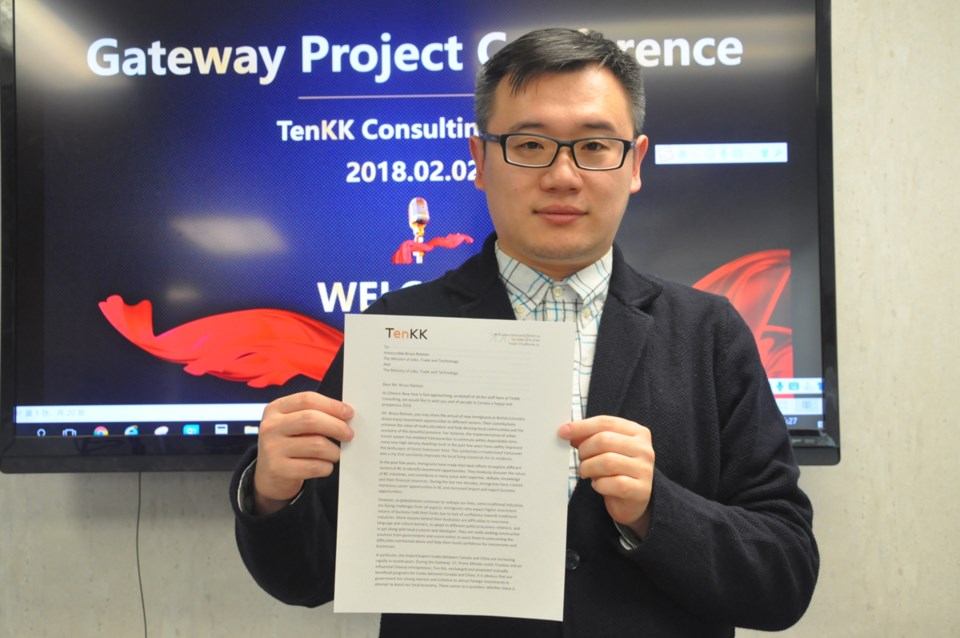The company that posted a controversial Chinese-only bus ad in Richmond last month is now asking the B.C. government to address disconnections between many Chinese businesses and the local community.
TenKK, a Richmond-based business consulting firm, sent a public letter to the B.C. Ministry of Jobs, Trade and Technology last week, asking for better support for Chinese investors and entrepreneurs in the province.
“Immigrants who expect high investment returns on businesses hold their funds due to lack of confidence towards traditional industries,” said the letter.
“More reasons behind their hesitation are difficulties to overcome language and culture barriers, to adapt to different political-business relations, and to get along with local customs and ideologies.”
The company is asking the government to provide “constructive solutions” to help immigrants “overcome the difficulties” and “build confidence” to invest and start businesses here.
The open letter follows TenKK’s release of its 2018 research on Vancouver Chinese businesses, which listed the top six challenges Chinese businesses in Vancouver currently face.
“Firstly, newcomers are often limited to choose industries that former immigrants chose. As a consequence, competition is intensified among Chinese businesses,” said Ian Li, manager of public relations at TenKK.
“And because of language barriers, many Chinese business owners limit their clients to Chinese only, finding it hard to integrate into the local business circle.”
When the Richmond News mentioned the free ESL courses the government offers to immigrants, Li responded, “It is the culture barriers that are really hard to overcome and keep many immigrants outside of the ‘mainstream’ market.”
Li said many Chinese investors come from labour-intensive traditional industries, and hope to transition to emerging industries with the latest technological trends, but are struggling.
He said his company’s Chinese-only ad is one of examples of a disconnection.
“We just wanted to post Chinese ads and English ads separately. We didn’t know (Chinese-only signage) is such a sensitive issue here and would make people so angry,” said Li.
Other factors, such as the lack of knowledge of different industry options and insufficient research into the local market, also drive interested business people away, according to Li.
“Also, different management philosophies and expectations sometimes create conflict between Chinese employers and Western employees,” he added.
TenKK hopes the provincial government can take action to solve the “common problems” shared by immigrant investors and help these investors be more successful.
For example, Li would like to see more programs and opportunities for immigrant business people to learn about local market and customs, as well as building connections. This would attract more people to start companies or invest in the B.C. market, he added.



